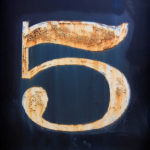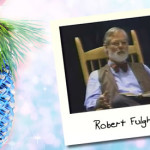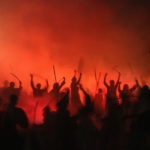
Maria Papova’s recent post on Brain Pickings is worth reading:
J.D. McClatchy on the Contrast and Complementarity of Desire and Love
“Love is the quality of attention we pay to things.”
We are creatures of such staggering psychoemotional complexity that we are often opaque to ourselves, purblind to the constellation of our own thoughts, our own feelings, our chaotic and often contradictory desires — nowhere more so than in the realm of the heart. “The alternations between love and its denial,”philosopher Martha Nussbaum wrote in contemplating the difficulty of knowing ourselves, “constitute the most essential and ubiquitous structural feature of the human heart.”
Perhaps the most disorienting aspect of that interior opacity is that of distinguishing between love and desire, both electrifying in their own right and interdependent in many ways, but throughly distinct species of being. The contrast and complementarity between the two is what the late, great poet and literary polymath J.D. McClatchy (August 12, 1945–April 10, 2018) explores in the preface to Love Speaks Its Name (public library) — his lovely 2001 anthology of LGBT love poems.
A desire can be a vague wish, a sharp craving, a steadfast longing, a helpless obsession. It can signal an absence or a presence, a need or a commitment, an ideal or an impossibility. The root of the word “desire” links it to consider and to terms of investigation and augury, thereby reminding us that desire is often less what we feel than what we think about what we feel. And the still deeper root of the word links it to star and shine, as if our desires, and bright centers of our being, were also like the fixed fates in the heavens, determining the course of our lives. Indeed, our mundane experience of desire often coincides with this sense of something beyond our control, of something confusing, something driving us beyond the bounds of habit or reason. It is the heart of our hearts, the very stuff of the self. Desire explodes past borders of time or law. It drifts through veils of propriety. It cannot be confined by social expectations or strictures.
Love is something else again. As mysterious as are the ways of desire, and as disconcerting its effects, love is desire raised to a higher power. It can be as consuming as desire, but it lasts longer. Love is the quality of attention we pay to things. Love is both the shrine and the idol. Love is what we make of other people, and what they make of us. It can be as dispassionate as a Zen monk’s, or as wasting as the Romantic hero’s.
In a sentiment that calls to mind physicist Richard Feynman’s extraordinary love letter to his young wife, penned after her untimely death, McClatchy adds:
Love has nothing to do with behavior or circumstance. Love doesn’t require sexual expression, or even a meeting, just as it continues, often stronger, after the beloved’s death.
[…]Anxiety is sewn into the lining of euphoria. What makes the beloved so dear, what makes love so precious, is the realization that it may — no, in the end, it will — end…. Love’s illusions are constructed in order to be undermined. Vulnerability, not music, is the food of love. Our fears are the black backing of our silvered hopes, and are as much a part of love as are the anticipation and the fervor. And when love evaporates or ends? Perhaps the most poignant stage of love is not its tender antennae probing the new surface, and not the glistening track of its progress, but the shell into which it retreats for shelter. Neither betrayal nor death can end our love. The force of memory, and the heart’s persistent needs see to that… Poems are meant to embody and eternalize the moment. So too are our memories of a love, just as love itself, when we are in the grip of it, throws off the shackles of time and makes us — for a moment that seems forever — feel divine.
Reflecting on the poems he anthologized — poems about “both desire and its higher power, and love in its tender or taunting variety”; poems composed by “men and women whose desires for love, over the centuries, have been condemned and persecuted” — McClatchy echoes Nietzsche’s insight into how we use metaphors to both conceal and reveal reality, and extols the singular power of poetry to liberate love from the confines of punitive concealment:
To hide something is to conceal it; to disguise something is to reveal it but only to those who know how and where to look. The very conventions of poetry were devised to encode experience, to make it less obvious and thereby more true. To make a metaphor, after all, is to describe something in terms of what it is not, the better to apprehend what it is.
The poems gathered in Love Speaks Its Name — timeless gems by poets as diverse as Sappho and Shakespeare, Baldwin and Bishop, Whitman and Wilde — are sectioned along the stages of love: longing, looking, loving, ecstasy, anxiety, and aftermath. Complement this tiny treasure with Love Found — an illustrated collection of classic love poems celebrating desire, longing, and devotion — and some of humanity’s most beautiful LGBT love letters, then revisit Irish poet and philosopher John O’Donohue on the disorientation of falling in love and Anne Sexton’s intoxicating hymn to desire, “Song for a Lady.”






























